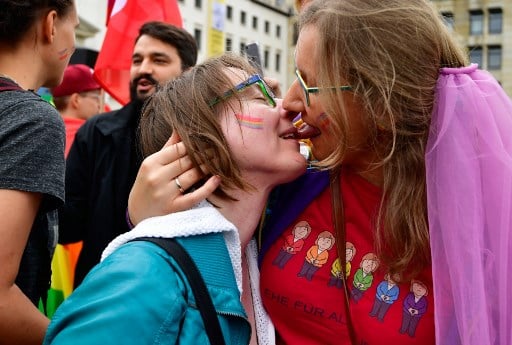Switzerland lags behind other European countries on the issue of gay rights.
Gay marriage is not legal in Switzerland, though same-sex couples can enter into a civil partnership after the move was approved in a 2005 referendum.
Friday’s decision by the German parliament met with approval from Swiss gay rights campaigners and politicians on Friday.
The liberal political movement Operation Libero tweeted, “Let’s do this Switzerland” and called on followers to sign a petition to parliament.
Social Democrat parliamentarian Cédric Wermuth wrote: “Switzerland must follow suit NOW. Discrimination is the only thing that is perverted.”
#Ehefueralle heute im deutschen Bundestag – die Schweiz muss JETZT nachziehen. Pervers ist einzig die Diskriminierung! pic.twitter.com/wsEku4FUDc
— Cédric Wermuth (@cedricwermuth) June 30, 2017
“We congratulate our big neighbour. It is taking a bit longer here but our initiative is on course,” wrote the centrist Green Liberal Party in a Tweet.
The party’s Kathrin Bertschy, who has launched an initiative on marriage for all, is hopeful that the German decision will drive marriage equality forward in Switzerland, the Tages-Anzeiger reported.
“Marriage for all is now unstoppable at the international level,” the paper quoted her as saying.
Two weeks ago the larger chamber of parliament, the National Council, voted in favour of launching a parliamentary study on the issue, suggested by the Green Liberal party.
The study will also examine the idea of extending civil partnerships to heterosexual couples.
In addition it will consider the impact of marriage equality on Swiss laws concerning tax, social security, adoption and fertility treatment.
Last year parliament took a step towards liberalizing adoption laws by voting to allow gay people in a civil partnership to adopt their partner’s children from a previous relationship.



 Please whitelist us to continue reading.
Please whitelist us to continue reading.
Member comments